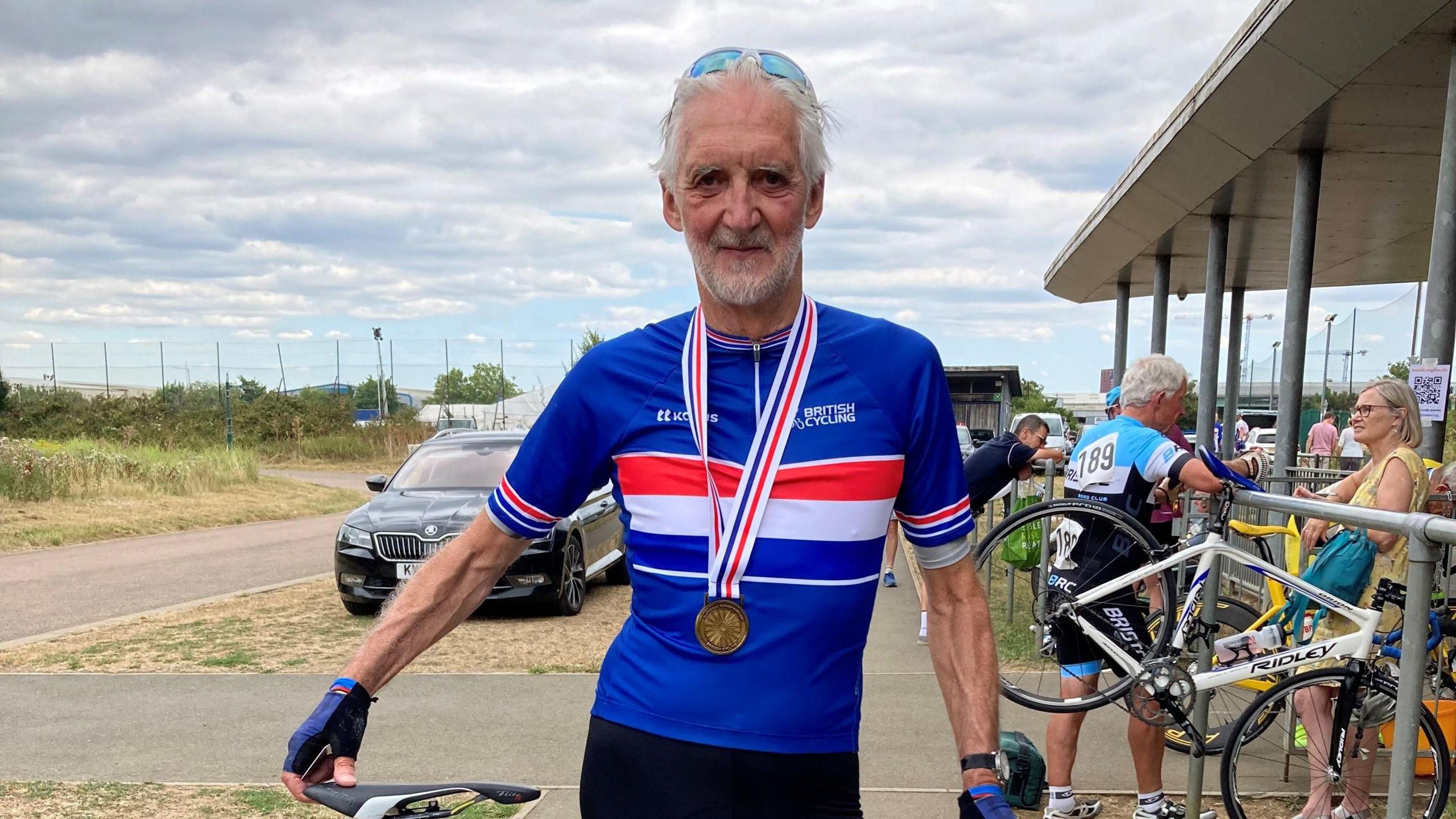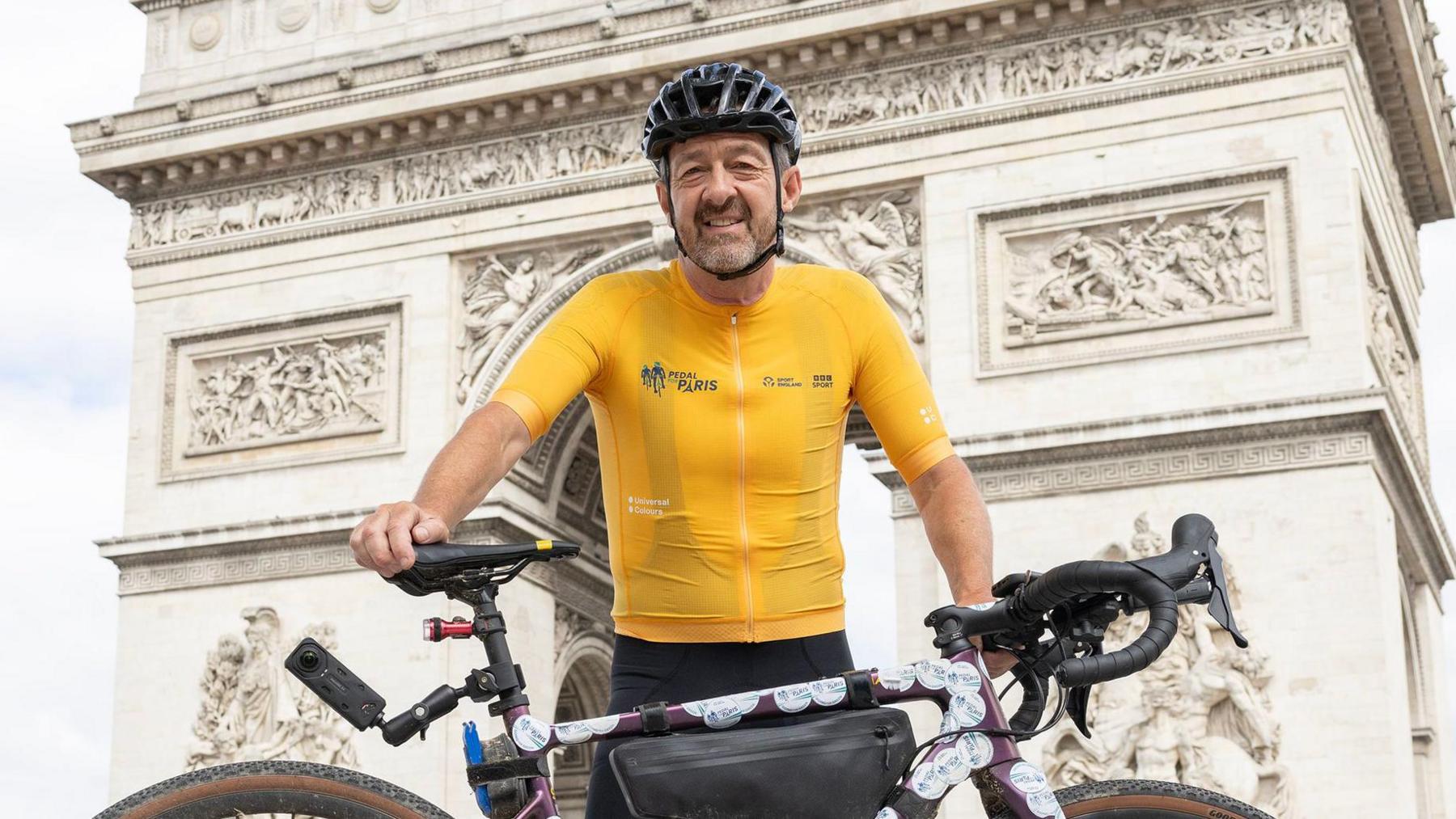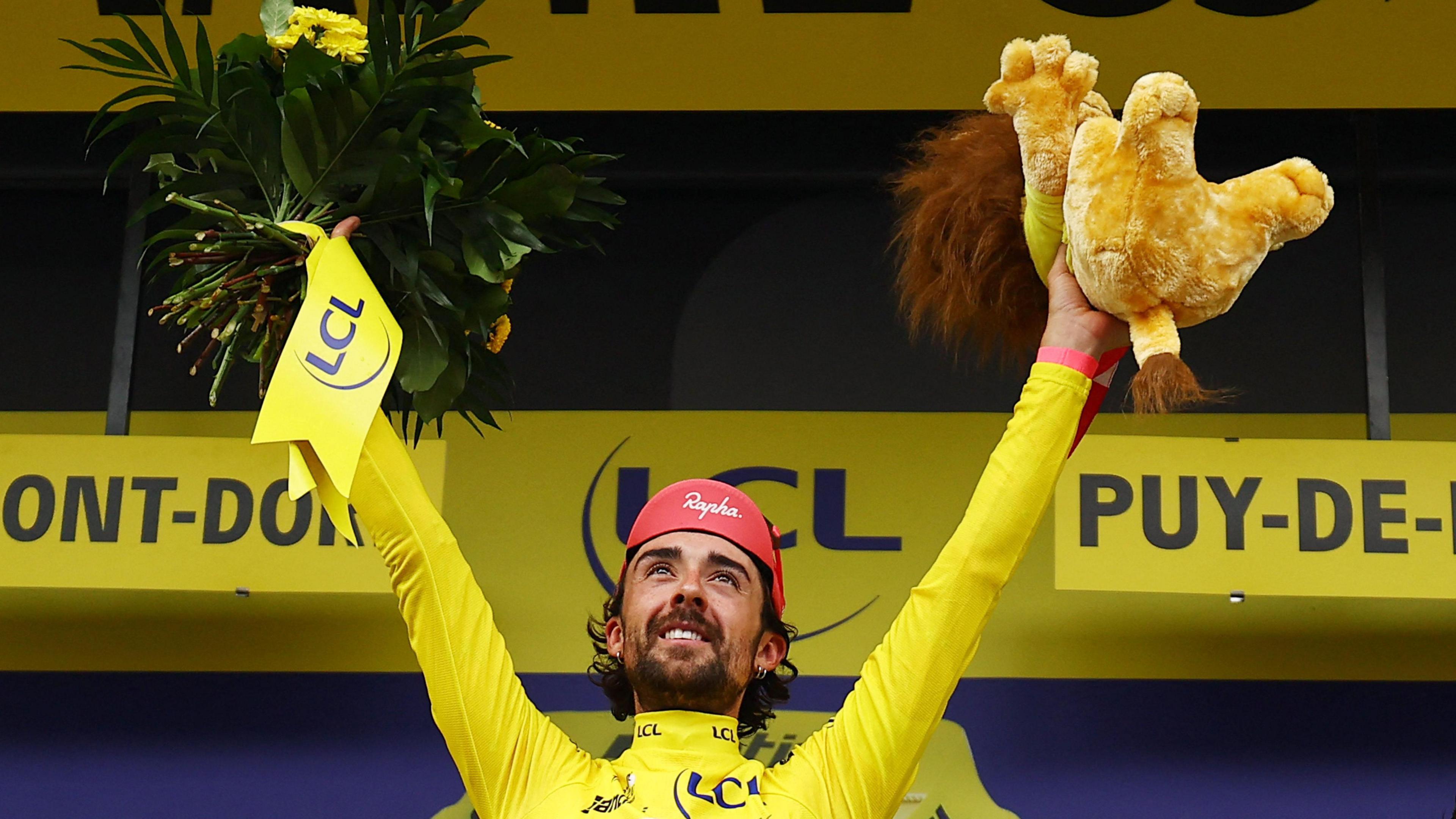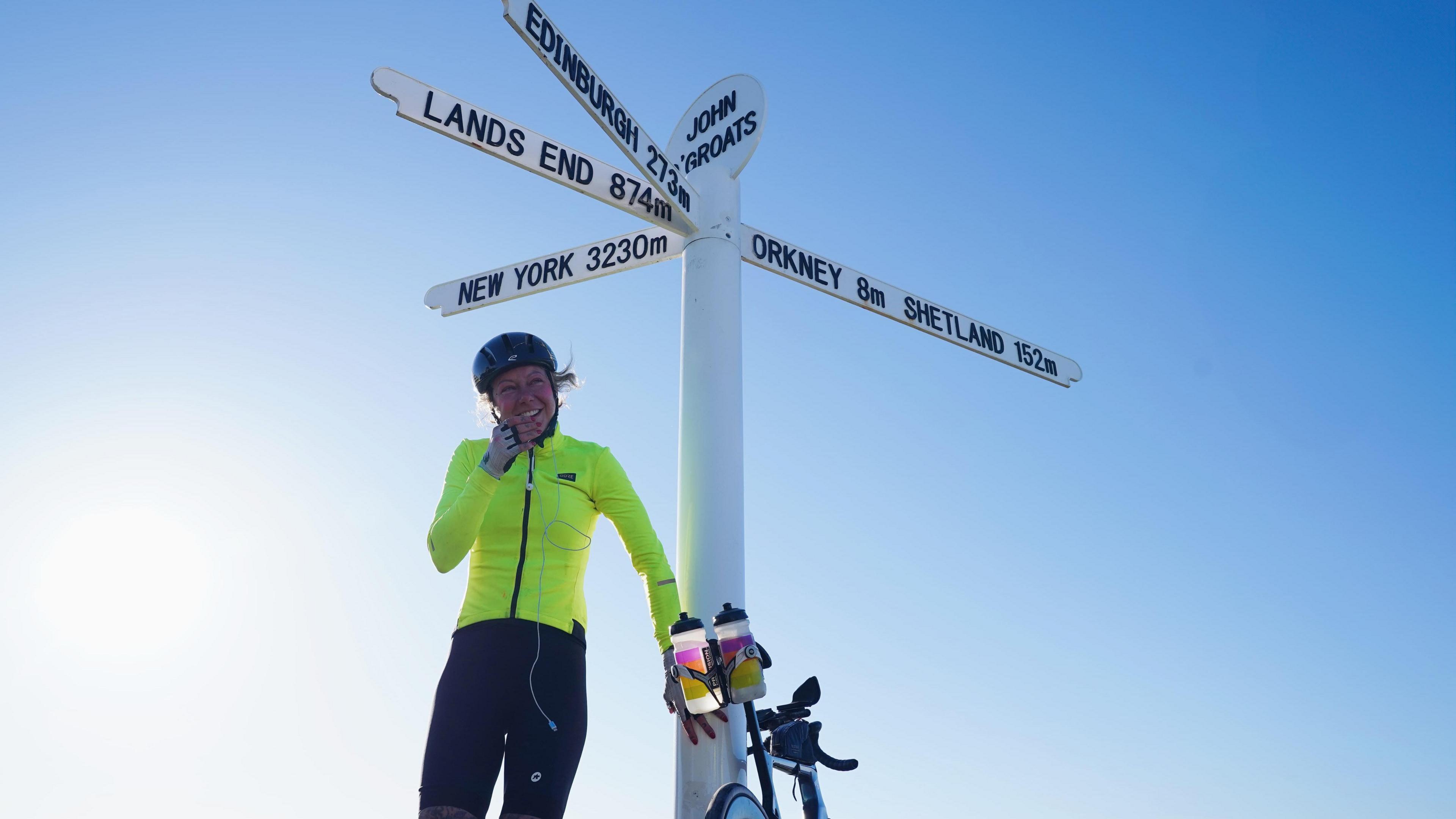Cycling grandad 'grateful' to be alive after scare

Brian Cookson says he "never had any problems" until he fainted on the track
- Published
A 74-year-old grandad who had an alarming wake-up call when his heart rate skyrocketed while cycling has said he is "so grateful" to be enjoying the sport again after being fitted with a life-saving medical device.
Brian Cookson from Lancashire had been training at the Manchester Velodrome when he felt unwell, and later discovered he had a serious heart condition.
"I came off and looked at my sports watch which read 'new heart rate record – 238 bpm' and I thought 'oh, that's not good'. And it wasn't going down," he said.
Mr Cookson has since been fitted with a implantable defibrillator to prevent future episodes and told other cyclists "if you get the opportunity for a health check, take it".
Mr Cookson, a former head of British and world cycling bodies, saw his heart rate hit 238 beats per minute after the training session in Manchester in 2024.
He had been fitted with a heart monitor as he was one of 108 men taking part in a study of the hearts of older male endurance athletes.
The veteran rider fainted and had to wait about 15 minutes for his heart rate to return to normal.
It came after an earlier medical episode he experienced where he felt unwell during training.
He said: "I was cycling and started feeling strange. I didn't know if I was in a dream, if I was asleep – then I hit the floor."
'Stop riding'
Researches from the University of Leeds were able to record exactly what was happening to his heart during the incident, and warned him to immediately stop cycling.
He said: "The next day, I got a call. They said, 'Stop riding your bike, don't do anything more strenuous than walking until we can get you in here because we think you need an ICD [implantable cardioverter defibrillator].'"
It was revealed he needed the device because he had experienced ventricular tachycardia, an abnormally fast heartbeat where the ventricles do not pump blood around the body effectively, which can lead to cardiac arrest.
Mr Cookson has since returned to cycling after being fitted with the implantable defibrillator, which will shock his heart if an abnormal rhythm reoccurs.
The university's study found nearly half of older male endurance athletes over 50 had scarring in their hearts which increased the risk of these episodes.
Dr Peter Swoboda led the British Heart Foundation-funded study and said the results "shouldn't put people off regular exercise" as the study focused on a select group and not all had scarring.
He said: "In our study, the athletes who experienced dangerous heart rhythms often had symptoms first.
"I'd encourage anyone who experiences blackouts, dizziness, chest pain or breathlessness, whether during sport or at rest, to speak to their doctor and get it checked out."
Mr Cookson said: "When I started out in cycling, people thought that taking part in endurance sport would as good as guarantee your heart would stay healthy.
"Over the past few years, we've learnt that it's not quite that simple."
Get in touch
Tell us which stories we should cover in Lancashire
Listen to the best of BBC Radio Lancashire on Sounds and follow BBC Lancashire on Facebook, external, X, external and Instagram, external. You can also send story ideas via Whatsapp to 0808 100 2230.
Related topics
- Published29 November 2024

- Published16 July

- Published20 May
